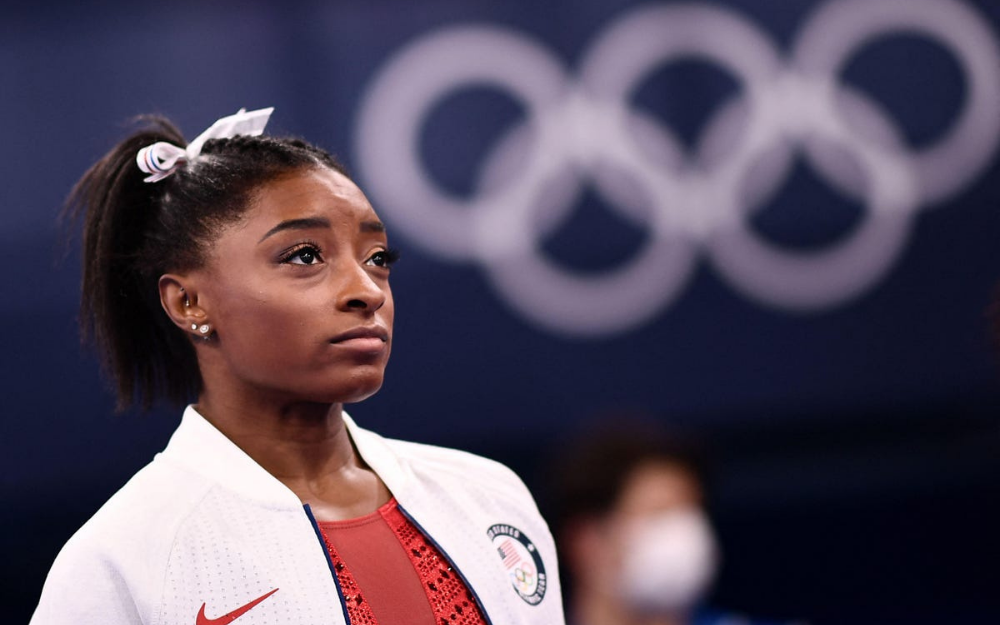What Olympians Are Teaching Young Girls And Their Parents About Prioritizing Mental Health
By Jilyne Jarvis, former US Ski Team athlete & ZGiRLS co-founder
The world watched in shock as Mikaela Shiffrin crashed for the third time this Olympics. As the reigning Olympic champion and one of the most decorated alpine athletes, she had high expectations for herself and quite honestly, so did the rest of the world.
“I just feel like a joke,” Mikaela shared in a post race interview, “makes me second-guess the last 15 years, everything I thought I knew about my own skiing, and slalom, and racing mentality.”
The truth is, when you’re the best in the world, everyone expects perfection and when mistakes happen it is often seen as a sign of weakness. However, in these moments I do not see a weak athlete. I see the often unspoken mental challenges that every Olympian has to face. I'm so grateful that the world gets to see these moments of frustration and disappointment in addition to the times they’re on top of the podium.
Simone Biles at the Tokyo 2020 summer Olympics when she chose her mental health over competing.
Last summer, Simone Biles withdrew from competition at the Summer Olympics because of her mental health. Although many didn’t understand why she would sit on the sidelines when she “didn’t have an injury”. She had the “twisties” which is when you can not tell up from down while flipping through the air. Simone knew that performing in her mental state was actually unsafe.
If an Olympian breaks their leg, we expect them to take a break and work with their medical team to rehabilitate back to health. However, what happens when the injuries are invisible because they’re in your mind?
What these Olympians have taught us is that every single athlete has to navigate their mental health, and at times it’s extremely difficult. So difficult, that they need the help of mental health professionals to navigate through it.
All I have to say is…FINALLY!
If the best athletes in the world–who are experts in optimizing their body and mind–struggle with managing their mental health, it makes sense why the rest of us also experience these challenges.
Stress, depression, and anxiety are invisible injuries that are stifled by shame and silence. So, while people should be seeking help and support for something that can be healed, they’re left struggling alone in silence.
I care deeply about this topic because, as a former US Ski Team athlete, I wish that I had been taught how to understand and navigate my mind at a much younger age. For years, I felt stuck in my own self-doubt, insecurities, and anxiety and I wish I had learned that there are tools and skills to regulate and navigate the internal conversation in my mind.
It’s one of the reasons why I've dedicated my career to equipping girls with the tools and resources they need to build a resilient and confident mind, because it is a skill that you can learn.
Lindsey Vonn at the Strong Girls Camp in partnership with Lindsey Vonn Foundation and ZGiRLS
Your mind is the most powerful tool in the human body, but it can also be the most detrimental. After all, no one can hear the things that you say to yourself. Only you can be the one to monitor and shape your self-talk.
Truth is, the pandemic has only exacerbated the daily suffering of so many people right now, which has increased the need for people to seek help. The problem is, most people don’t speak up and share that they’re struggling so they don’t know how to start healing.
My hope is that these Olympians are helping to normalize the mental challenges we all have to face in life and how difficult it really is to push through the low and painful times.
For these very reasons, I started a nonprofit with female Olympians called ZGiRLS. We teach girls concrete mental skills that help them build confidence and mental resilience for life. Every single week, I get to witness world-class athletes humbly sharing their stories of self-doubt and insecurities to hundreds of girls around the country. Believe me when I say, it’s life-changing for these girls!
So, in addition to the inspiring gold medals and success stories we get to see at the Olympics, I’m grateful for the upsets and disappointments, too. Because hey, if super hero Olympians need help with their mental health…it’s okay if you do too.



